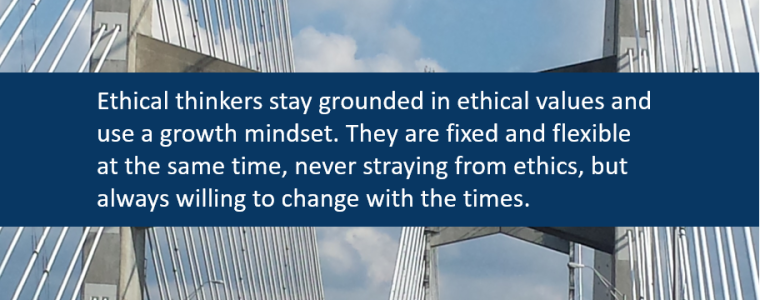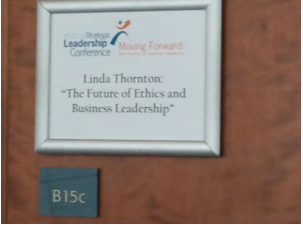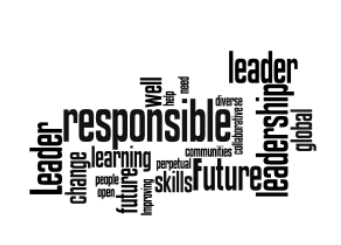By Linda Fisher Thornton One of the thinking traps that people fall into is putting people into categories. This may result in assigning a derogatory label to the category, and making blanket statements about how "all people" from that category are a certain way.
Tag: ethical leadership context
What Role Does Exclusion Play in Hate and Violence? Part 2
By Linda Fisher Thornton Moral exclusion includes using an insider mindset and thinking that others (who are not members of the group) as not worthy of protecting. If you're not yet familiar with moral exclusion, this post may be helpful background on differences in world views and selective inclusion.
What Role Does Exclusion Play in Hate and Violence? Part 1
By Linda Fisher Thornton Hate speech and violence do not adhere to ethical values. An ethical person will quickly rule them out due to the harm they cause to others. But even when someone wants to be an ethical person, there are problems with human thinking that can enable hate and violence to happen.
Ethical Leadership Development: Preparing Leaders For the Future
By Linda Fisher Thornton I spoke with Human Resource leaders attending a Richmond SHRM Strategic Leadership Conference about The Future of Ethics and Business Leadership. The lens I used to frame the discussion was leadership development – how we can prepare leaders to lead ethically in a highly complex, connected future. Here are some highlights from my presentation – a few of the important success principles for developing “Ethical Leader Future.
Ethical Leadership Development: Global Awareness
By Linda Fisher Thornton Laws serve as he minimum standards for society, but responsible leadership requires that we go well beyond those minimum standards. This post explores resources that help us understand (1) what it means to be a globally responsible leader and (2) what kinds of learning opportunities help leaders develop a global sense of responsibility.
10 Quotes to Inspire Leaders in 2024 (Part 2)
By Linda Fisher Thornton This series includes 10 quotes (linked to blog posts with leadership guidance) to inspire you and help you improve your leader development as we head into the new year. Part 1 included the first 5. Here are 5 more:
5 Phrases to Watch For: Ignoring Ethical Boundaries
By Linda Fisher Thornton Boundaries can be simply described as lines that we don’t cross when doing business. Respecting these (sometimes clear, sometimes hazy) boundaries is an important part of today’s ethical leadership. The 5 phrases below signal that the speaker is ignoring an important ethical boundary:
Hallmarks of Ethical Leadership (Part 2)
By Linda Fisher Thornton In Hallmarks of Ethical Leadership (Part 1) I shared 3 special qualities or behaviors that define ethical leadership. These three additional leadership behaviors even more directly impact others in a positive way.
Hallmarks of Ethical Leadership (Part 1)
By Linda Fisher Thornton How do you recognize an Ethical Leader? Today I’ll share 3 special approaches to the leadership role that are central to ethical leadership. These are ways that ethical leaders understand their roles and responsibilities in relation to others and world.
How to Tell What’s “Right” in a Complex Situation
By Linda Fisher Thornton To understand a complex situation, you first have to WANT to see it as it really is. This means letting go of preconceived ideas of what might be true, and being open to what may unfold as you learn more. After approaching the situation with this open mindset, you need to get more information. As you know from completing puzzles with lots of pieces, a few pieces do not show you the whole picture. As you complete a jigsaw puzzle, you start to see parts of the picture and begin to get a sense of it, but you're definitely still not seeing it as it really is.
Ethical Thinking and Decision Making for Leaders (Part 6)
By Linda Fisher Thornton This series has explored 5 important leadership spheres of Ethical Thinking and Decision Making. This week I’m summing it up in a checklist that will help you apply all 5 to your daily choices. When you are making a key decision, run it through the checklist to be sure you have considered all 5 important dimensions.
Ethical Thinking and Decision Making for Leaders (Part 5)
By Linda Fisher Thornton While change is a constant reality, it doesn’t always factor into leadership thinking. In Part 1 and Part 2 of this series, I explored the Depth of our thinking, and the importance of understanding Context. In Part 3 and Part 4, I looked at embracing Complexity and the importance of full Inclusion. In Part 5, I’ll describe how embracing Change helps us make ethical decisions.
Why Making Money Doesn’t Ensure Business Success
By Linda Fisher Thornton Ask for profitability and your company may get it, at the expense of customer satisfaction, employee engagement, and product safety. Making profitability a top business goal without balancing that with adequate ethics awareness is extremely risky, and could lead to community backlash that ends up destroying your brand.
Ethical Leaders Care (Part 4)
By Linda Fisher Thornton I wonder what our workplaces would be like if every leader cared. Most leaders care about their own well-being. But what if every leader cared about others? How would things be different? In an organization where every leader cared, wouldn’t we experience improved employee engagement and customer retention? Wouldn’t it be easier to recruit and retain talented and dedicated employees? Wouldn’t we be able to get more done?
Ethical Leaders Care (Part 3)
By Linda Fisher Thornton Demonstrating care is one of the hallmark requirements of good leadership. In addition to caring about what happens in our own careers, we must CARE about people, about their success, and about creating a positive work environment. If leaders don’t seem to care, that numbs the organization’s culture, disabling the natural systems that would prevent and identify ethical risks.














